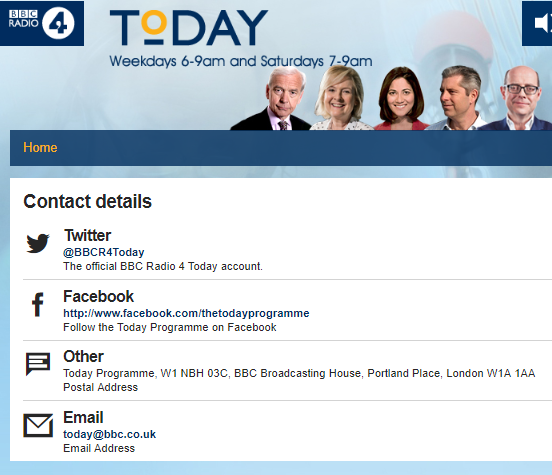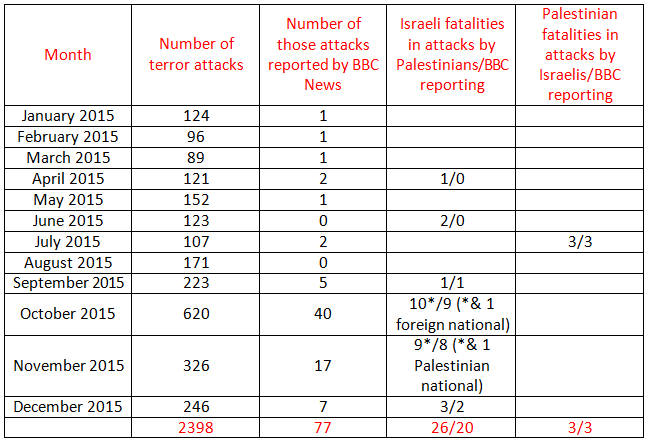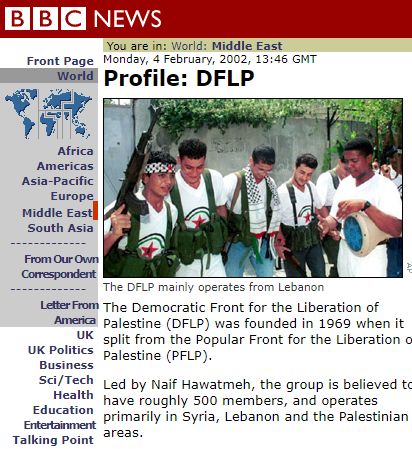As we saw in part one of this post, the May 31st edition of the BBC Radio 4 ‘Today’ programme ran an item which included a report by the BBC Jerusalem bureau’s Yolande Knell ostensibly about Palestinians from the Gaza Strip travelling to Jerusalem for healthcare.
That was followed by an interview with a British MP who had been taken on a four-day paid trip to Jerusalem by the anti-Israel NGO ‘Medical Aid for Palestinians’ and who falsely claimed that two premature infants born to a mother from the Gaza Strip had ‘died alone’ in a Jerusalem hospital because of “inhumane” Israeli security checks before entry permits are given to Gaza Strip residents.
Not only did presenter Mishal Husain fail to challenge the inaccurate version of the story told by her interviewee Rosena Allin-Khan, but she went on to embellish it with fictions of her own.
Following that, Husain introduced her final interviewee ( from 01:53:29 here) and in her opening statements, once again promoted the falsehood that she and Allin-Khan had woven – this time in the plural.
Husain: “…Sharon Bar-li is Israel’s deputy ambassador to the UK. […] What would you say to that point that Dr Rosena Allin-Khan has…has made that the system at the moment means that there are Palestinian children who die alone in hospitals in Jerusalem?
Bar-li: “…the policy is such that no child, no patient, should go into Israel to receive medical treatment by itself. Every patient should be accompanied and when it comes to children, it should be accompanied preferably by a parent, by the mother or by family member…”
Husain continued to inflate her own chimera, using a story from Knell’s report in which one child traveled to Jerusalem for chemotherapy with a grandparent as the base for the unevidenced claim that “often” parents do not get a permit to accompany their child.
Husain: “Yeah. I mean you know that it often doesn’t…from what we’ve heard in that report, often it is not the parent that for whatever reason – a security reason I imagine – the parent does not receive…ehm…the permit to enter Israel. But what kind of security risk is really posed by the parent of a child who’s going for chemotherapy or indeed a mother who’s just given birth to triplets?”
Once again Husain used a strawman argument: obviously the mother of the triplets was not deemed a security risk because she got a permit to travel to Jerusalem for the birth in the first place and later was given another permit to travel to collect her daughter from the hospital.
Bar-li: “As you know, Gaza is controlled by Hamas which is a terror organisation and there’s been plenty of cases in the past where unfortunately Hamas has abused – cynically abused – patients, many times without their knowledge, planting on them explosives, money, other information or devices, in order to instigate terror attacks. There are…”
As is all too often the case when Mishal Husain interviews Israelis, she then became noticeably impatient and proceeded to repeatedly interrupt her interviewee.
Husain [interrupts]: “Parents of children who are going to Israel for chemotherapy?”
Bar-li: “They don’t know. There has been cases in [the year] two thousand…”
Husain [interrupts]: “How many cases?”
Bar-li: “There has been several cases like this. Imagine when you go into hospital carrying a medical tube and this medical tube actually has an explosive in it. Can you imagine what would happen if it will explode in a hospital? And even if there were only…”
Husain [interrupts]: “Sorry, just to be clear: has that actually happened? When did it happen? How many times did that happen?”
Had the BBC bothered to report that story (and many similar ones) at the time, Husain would perhaps have known what her interviewee was talking about.
Bar-li: “It happened in 2017. There was a case of two sisters, one of them was a cancer patient. Her sister accompanied her and without their knowledge they were given medical tubes in which there were explosives. And it was revealed and a great disaster was prevented. There are also interviews with Hamas militants that were arrested in which they are exposing the methods and in which they are testifying to this method. Hence security measures need to be taken and we have to be extra vigilant. It’s important also to mention the role of the Palestinian Authority in…in delaying or preventing some of these permits.”
Husain obviously was not interested in having the deputy ambassador tell listeners about Palestinian Authority policies relevant to the topic ostensibly under discussion.
Husain: “OK yes because it’s a complicated process of getting approvals from different points.”
Bar-li: “Not just…not just because of the complication of the process…”
Husain [interrupts]: “There are many layers of it.”
Bar-li: “Actually recently…”
Husain [interrupts]: “You heard…you heard what we’ve been…it’s just that we understand the process is complicated but we can see from the figures that the approvals for patients who are travelling from Gaza into Israel, the numbers of those have been going steadily down over the years. In 2012, which was after Hamas came to power, it was something like more than 90% and it’s now down to around 65%. There are lives that are being lost in the process.”
Bar-li: “Over the years tens of thousands of Palestinians exit Gaza, entered into Israel to receive life-saving treatment. We of course sympathise with any person in need but at the same time we should remember that there is a complex situation. Actually, when you look at the numbers of [for] 2018, you see a 15% increase in humanitarian permits being issued to Gazans in comparison to 2017.”
Husain: “It’s currently 65% of permits that are approved according to the WHO. Those were the figures from March 2019 which is down from where they were in 2012.”
A closer look at the World Health Organisation data supposedly quoted by Husain shows that while indeed 65% of the 2,004 applications for travel permits for patients were approved in March, it is not the case that – as listeners would naturally have concluded – 35% were refused. In fact 32% of the total requests were delayed and 4% denied.
Husain then indulged herself with some blatantly brash editorialising which once again used the falsehood that she and Allin-Khan had earlier cooked up:
Husain: “The fact remains that healthcare restrictions are being used to dehumanise the Palestinian people and no child should die alone.”
As Sharon Bar-li tried to respond, Husain cut her off and closed the item there.
It is of course all too clear that this long item was not news but over twelve minutes of journalistic activism based primarily on a false story irresponsibly promoted by a British MP who was taken on a paid jaunt by an organisation devoted primarily to anti-Israel campaigning for decades.
Not only did the BBC clearly make no effort to check that story and its dubious source, but Mishal Husain deliberately spun it into ‘fact’ in order to influence audience opinion on this topic, thereby providing backwind for existing political campaigning by that anti-Israel NGO and others.
That of course is ‘fake news’ according to this definition:
“Fake news is a problem for different reasons.
The first kind of fake news – deliberate lies – is a problem because it can make people believe things that are completely untrue.
The second kind – when people publish something without checking that it’s completely right – can make people have less trust in the media, as well as make everyone believe something that might be inaccurate.
People also only tend to share things that they agree with. So if people are sharing a lot of fake news, and lots of people believe it, it’s easy to get sucked into a bubble that is actually completely different to the real world – and a long way from the truth.”
That definition was produced by the BBC itself within the framework of its claim to counter fake news. In fact, as we see in this example, the BBC itself contributes to the phenomenon.
Related Articles:
BBC R4’s ‘Today’ listeners get a distorted view of medical permits – part one
BBC ignores another story explaining the need for Gaza border restrictions
BBC News again ignores abuse of Israeli humanitarian aid to Gaza
Resources:





